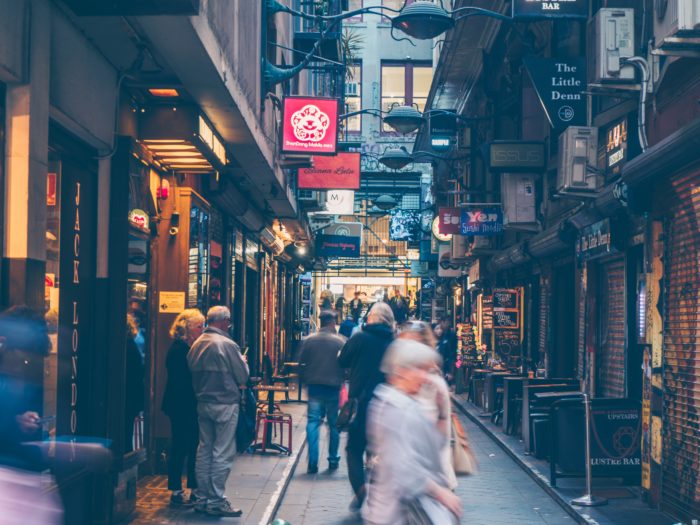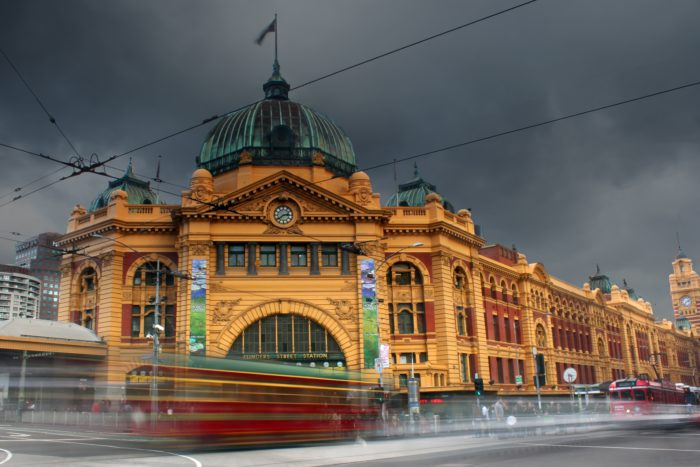Rough Sleeping in Melbourne: Mental Health & Trauma
September 11 2019
By Sheldon Fauth, Launch Housing Mental Health Practitioner Daily Support Team (Image: via Unsplash)
I’m a mental health practitioner and assertive outreach worker embedded with the Daily Support Team in Melbourne CBD. I assist rough sleepers to find a pathway out of homelessness, provide mental health assessments, referrals and housing supports.
There’s a large homelessness community in Melbourne that assertive outreach workers engage with on a daily basis. The majority of people experiencing homelessness will live with some form of mental illness; this can be anxiety, depression, psychosis, schizophrenia or personality disorders.
The stigma associated with homelessness seems to reflect the wider population’s lack of understanding of what it means to sleep rough and the trauma that is continually imposed on the rough sleepers due to their living conditions.
While mental illness may contribute to homelessness, the longer an individual is without a home, the more likely they are to have mental health challenges.
Frequently, a person sleeping rough will be in a state of ‘flight or fight’ in order to cope with stressors.
Many rough sleepers stay up all night to ensure their safety; then sleep during the day. Another factor which impacts a rough sleeper’s mental health is the daily experience of trauma.
Most rough sleepers have experienced traumatic events that may have led to homelessness and this trauma can be multiplied whilst experiencing homelessness.
Rough sleepers experience trauma in many ways, from being physically or sexually assaulted, having their belongings stolen or removed, being sectioned by police or being taken to hospital under the Mental Health Act.
(Image: via Unsplash)
A major barrier for rough sleepers trying to access supports is that the system is very complex to navigate.
The welfare system is meant to support people. However, supports for people sleeping rough are almost non-existent and a person’s mental health is impacted by the lack of suitable and sustainable housing options available.
Another issue, which I encounter regularly, is people having to re-tell their traumatic story every time they want to access a service.
I have also frequently witnessed the strong stigma and lack of knowledge concerning rough sleepers in the community. It’s reiterated to me time and time again. People focus on an experience of homelessness and substance use.
I believe mental health and substance misuse must be addressed with intensive supports. Not all rough sleepers use substances, however, many do, for a myriad of reasons.
Addiction is a core reason why people sleeping rough may use substances, however, the addiction could have happened before homelessness, or post-homelessness.
Also, some rough sleepers use substances to manage mental health symptoms and to cope with the harsh realities of sleeping rough.
(Image: via Unsplash)
I believe there is so much more work we must do for people experiencing homelessness and mental illness.
The Royal Commission into Victoria’s Mental Health System is extremely important and must address the barriers that people face when experiencing homelessness and mental illness. I believe the improvements we need to see include:
- More housing options when people exit hospital from a psychiatric facility
- Better access to the mental health system for vulnerable people
- Improved mental health service response times
- More options for people with a mental illness who aren’t experiencing an acute mental health episode.
The people I work with on a daily basis are resilient, street savvy and in many cases have histories of significant trauma and complex needs. Some are suffering in silence only to be noticed once they experience an acute mental health episode.
Addressing homelessness needs to be a priority. I believe the Royal Commission needs to recommend reforms to the mental health and housing systems.
We need to bridge the gap with education, more housing and mental health services for our communities most vulnerable.
A person with a lived experience of homelessness is a human being. They deserve the same respect and care as everyone else.





